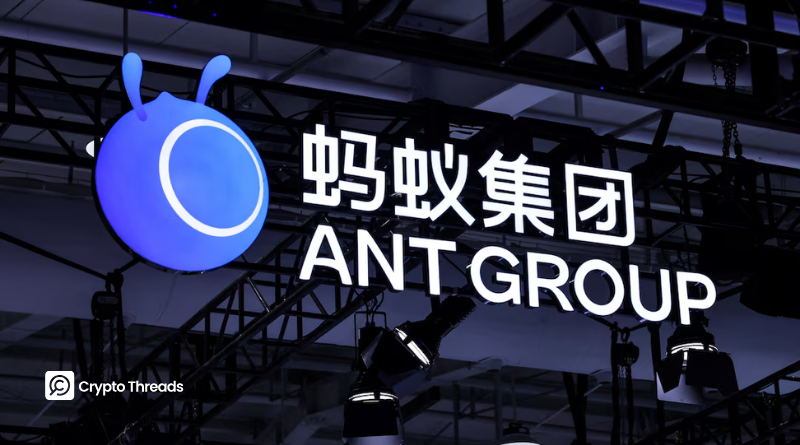Chinese Tech Giants Suspend Hong Kong Stablecoin Plans Amid Beijing Pressure
- Ant Group and JD.com paused their Hong Kong stablecoin projects following instructions from Beijing regulators.
- The People’s Bank of China (PBoC) and Cyberspace Administration of China (CAC) raised concerns about private firms issuing digital currencies.
- Hong Kong’s stablecoin initiative faces growing uncertainty despite early enthusiasm.
- Mainland regulators are increasingly cautious about offshore crypto and tokenization projects.
- The move reflects Beijing’s tightening control over China-linked digital finance ventures.
Chinese technology giants Ant Group and JD.com have reportedly halted their stablecoin initiatives in Hong Kong after authorities in Beijing expressed unease about private companies issuing digital currencies. According to a Financial Times report, both firms were instructed by the People’s Bank of China (PBoC) and the Cyberspace Administration of China (CAC) to suspend their projects until further notice.
“The real regulatory concern is, who has the ultimate right of coinage — the central bank or any private companies on the market?” a source familiar with the matter told the FT. The comment underscores Beijing’s long-standing position that monetary issuance should remain under strict state control, particularly in light of China’s rollout of the digital yuan (e-CNY) as its official central bank digital currency (CBDC).
Earlier this year, both Ant Group and JD.com had signaled interest in participating in Hong Kong’s stablecoin pilot program, exploring tokenized financial products such as digital bonds and yuan-pegged stablecoins. However, this optimism faded as Beijing tightened oversight of cross-border crypto and fintech initiatives.
Hong Kong had introduced its stablecoin licensing regime in August, initially positioning the city as a testing ground for digital finance innovation within the framework of “One Country, Two Systems.” Mainland officials viewed the program as an opportunity to promote renminbi-linked stablecoins that could help internationalize the yuan. Yet, momentum slowed after Ye Zhiheng, executive director of intermediaries at the Securities and Futures Commission (SFC), warned that the new framework might increase fraud risks and expose investors to unregulated products.

Compounding the uncertainty, Hong Kong-based stablecoin companies experienced sharp losses on Aug. 1 — the same day the new rules came into effect. This added to skepticism within Beijing about the prudence of allowing large-scale private stablecoin ventures to proceed.
In September, Chinese financial media outlet Caixin reported that Beijing had imposed new restrictions on Hong Kong’s stablecoin activities. Although the report was later removed, it hinted at growing tensions between the mainland’s conservative monetary stance and Hong Kong’s more open financial experiments.
Beijing’s hesitation toward tokenization extends beyond stablecoins. Last month, China’s securities watchdog reportedly directed several mainland-affiliated brokerages to pause real-world asset (RWA) tokenization initiatives in Hong Kong. The move came even as tokenization efforts were gaining global traction — exemplified by CMB International Asset Management (CMBI), a subsidiary of China Merchants Bank, which tokenized its $3.8 billion money market fund on BNB Chain.
This duality — supporting state-led blockchain innovation while curbing private-sector crypto initiatives — illustrates China’s cautious balancing act. By granting limited autonomy to Hong Kong’s regulators but reserving ultimate authority in Beijing, the central government aims to prevent the rise of parallel digital monetary systems that could challenge the supremacy of the yuan.
Final Thought
The suspension of stablecoin plans by Ant Group and JD.com underscores Beijing’s tightening grip over digital finance and its reluctance to let private entities influence currency issuance. While Hong Kong remains a testing ground for tokenization and digital asset innovation, the latest interventions reveal the limits of that autonomy. China’s stance suggests that while it embraces blockchain technology, it intends to keep full control over the monetary and regulatory framework behind it.



